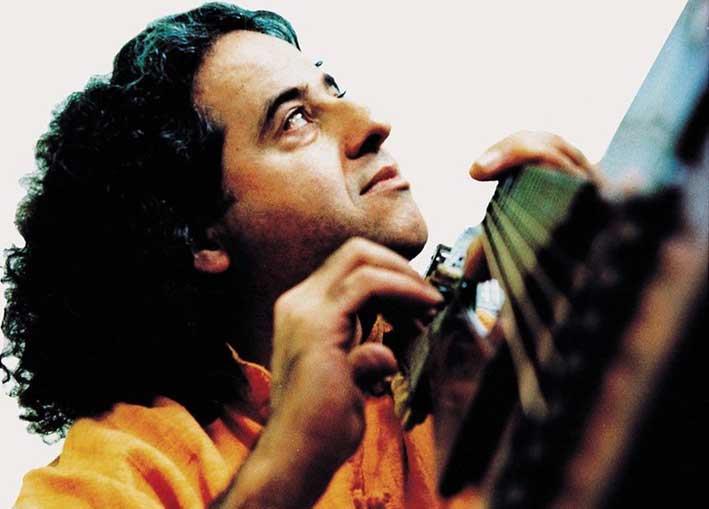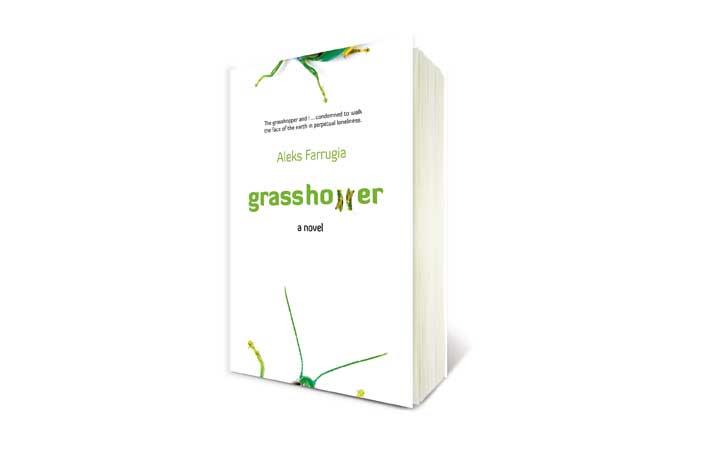An invitation to lunch with Laurent Croset, the Cultural Attaché or to give him the exact title, Conseiller de Coopération et d'Action Culturelle of the French Embassy found us in the lounge of the Westin Dragonara. This is a favourite of mine where armchairs are comfortable, the ambience most pleasant, the service genial and the food just what one needs for a meal which isn't heavy. And of course, most important of all the parking is easy.
M. Croset has now been in Malta for three years and his term of office is nearing its end. In summer he will be returning to Paris with most of his well-travelled family. He has worked very hard during his 'mission' on these islands, bringing us some very pleasurable events.
I love listening to his French accent, every word as clear as crystal, and he is naturally very well informed on what is happening in the world of culture especially.
As we sipped on our wine he told me that to celebrate the last day of La Semaine de Francophonie 2017 the embassy has invited a very interesting musician to come and play at the Catholic Institute (which holds an audience of some 800). "This is going to be an unusual spectacle," he assured me. "The musician we have engaged is called Abaji. He is a multi-instrumentalist, born in Lebanon, living in France and of an Armenian-Greek-Turkish-Syrian and Lebanese extraction: the perfect Mediterranean musician!"

For Abaji, languages are like musical instruments and he sings in the five languages of his family: French, Arabic, Armenian, Turkish and Greek. "He plays a Greek bouzouki and a Turkish mandolin (saz); a black sea violin (kemenche), a bamboo clarinet, and flutes and percussion and, most of all, a special instrument he invented as a missing link between the Spanish guitar and the oriental lute: the oud-guitar. Abaji composes and plays a World Music rooted in the Blues," says M. Croset.
Abaji comes from a musical family - his Armenian grandmother played the oud (lute), his great-grandmother the kanun (zither), and his six maternal aunts were all passionate musicians.
Abaji started playing and experimenting on an inexpensive Chinese-built guitar alone in his Beirut bedroom, listening to Cat Stevens, Creedence Clearwater Revival, and Bob Dylan, while strains of Oum Kaltoum and Turkish music drifted in the window. "His musical education began in earnest when he fled to Paris after conflict erupted in Lebanon in the mid-1970s. In Paris he realized that music was his calling and began studying percussion with an inspiring Brazilian player, soon moving on to voraciously explore dozens of other instruments," M. Croset enthusiastically explains.
"Abaji's passion for instruments - and he has more than 250 - stems from his deep desire to take the sounds he began to hear as a young man and turn them into uniquely vibrant, uniquely personal music. As he devoured everything from the bouzouki to the Colombian bamboo saxophone, however, he saw he needed to more than just play them; he had to reinvent them" M. Croset comments. This musician always had a sound in mind, and one question: How can I bring it to life through an instrument? He had to talk to instrument builders and get them to change things, but he didn't have a dime to his name. This frugality-forced creativity breathed new life into old instruments on their last legs, transforming them into cross-cultural amalgams. The result: one-of-a-kind hybrids like the resonant sitar-guitar or an invention that appears on his album Origine Orients the oud-guitar. "So he took an old classical guitar headed for the trash, removed the frets so he could play quarter notes, and doubled the nylon strings to have the lute effect.
"Abaji has worked to capture his own trans-Mediterranean brand of the Blues, not only by creating new instruments, but by developing a unique approach in the studio. He turned himself into a global one-man-band, in part thanks to the acrobatic aplomb and grace he developed as a tai-chi instructor," says M, Croset.
Entrance to this unique spectacle is free he points out, however, a contribution which will go to the Community Chest Fund will be very welcome. "No tickets are needed. Just turn up with your family on Saturday 8 April, at the Catholic Institute at 4pm and enjoy this unique show," he urges us all. I shall turn up with my older grandchildren. Children need to be exposed to as much music as possible so that they will grow to understand it and love it.
A most pleasant lunch I must say with an erudite French gentleman.

Aleks Farrugia's first novel 'Grasshopper'
The design of Grasshopper published by Merlin last year is arresting, cutting edge. The cover was the work of Pierre Portelli and the author dedicated his novel to the composer 'Karl Fiorini: a fellow traveller and craftsman.'
I was at Mater Dei earlier this week and joined two queues, having finished from one test I queued for another. (I am VERY impressed with the service, let me add.) I noticed one thing. Not one single person waiting there for their turn was reading a book or even just browsing through a magazine. We already know from surveys, that we are simply not a nation of readers. We'd rather spend the 'waiting time' in idle gossip, empty talk or simply staring into empty space. It therefore takes courage to write especially a novel in English when more and more people seem to be reading in Maltese. Local publishers are even more courageous than writers for they have much more to lose. I take off my hat to them.
At hospital I took along with me Aleks Farrugia's novel Grasshopper. It is an 'easy' read with a storyline that is not difficult to follow. Aleks writes well. My objection to this novel is the constant use of the F... word. I come from an earlier generation to Aleks's and some things which still disturb my generation do not disturb many of the younger generation.
Tracy Ullman the multi-career stage and screen actress etc. said in an interview when asked which words or phrases do you most overuse. "F***, it's the greatest word. When are we going to lighten up on it! It emphasizes things beautifully!" Yes, maybe she is right. What's in a word after all, four-lettered or not? And yet, and yet this word has acquired connotations which will be very difficult to shake off. I also think that the English language with its very rich vocabulary, has an enormous wealth of words which are expressive. So why use the F*** word so very often?
Sex looms large in this novel. I would go so far as to say that its beauty is diminished and is merely another physical function, like eating and sleeping. More plain F***ing than Loving. Tenderness doesn't come into it at all. I would not wish to have anything to do with the main character, Daniel Hart, in real life. Perhaps Grasshopper simply reflects our time, and I no longer feel I belong to a world which seems to depreciate most things my generation held sacred.
[email protected]